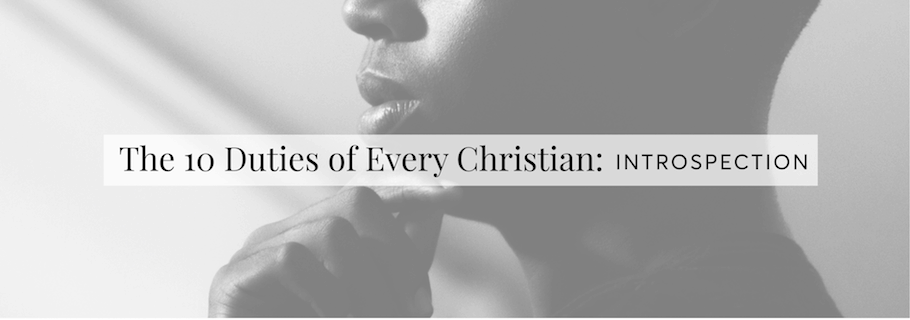What is an inch? What is a kilogram? That’s easy: An inch is the distance between two notches on a ruler and a kilogram is the weight that makes the needle point to “1” on a kitchen scale. We take such weights and measures for granted, forgetting that they have no meaning and no definition in themselves. For an inch to be an inch it must conform to an accepted measure; for a kilogram to be a kilogram it must match an exacting standard. Governments have entire departments tasked with ensuring weights and measures are accurate, that they conform perfectly to accepted definitions.
Every human being lives according to some kind of a standard. There is some outside criterion each of us uses to measure our morality, to weigh our ethics, to judge our successes or failures. We may compare ourselves to parents or peers or great heroes of days gone by; we may compare ourselves to the laws of the land or the laws of the universe; we may compare ourselves to religious leaders or sacred texts. But none of us lives entirely disconnected from outside standards, from some measure of comparison. We are no more independent than an inch or a kilogram.
If we wish to live moral lives, ethical lives, successful lives, significant lives, we must live as Jesus lived.
As Christians, we are sure of our standard of comparison. We compare ourselves to Jesus Christ, for “whoever says he abides in him ought to walk in the same way in which he walked” (1 John 2:6). He is our standard. He is our measure. He is our criterion. If we wish to live moral lives, ethical lives, successful lives, significant lives, we must live as Jesus lived. He is our inch, he is our kilogram.
But how can we know if and how we are “walking in the same way in which he walked”? Through the Christian duty of introspection.
The Purpose of Introspection
The Bible mandates and models introspection. In Lamentations we read, “Let us test and examine our ways, and return to the Lord” (3:40) while in 2 Corinthians we encounter this command: “Examine yourselves, to see whether you are in the faith. Test yourselves. Or do you not realize this about yourselves, that Jesus Christ is in you?—unless indeed you fail to meet the test!” (13:5). In the Psalms we often read of David looking inward and crying out to God for help in this task (Psalm 139:23). Asaph tells of the benefit that came when he diligently meditated in his heart and searched his spirit (Psalm 77:6).
There are at least two great purposes in such introspection. The first purpose is to reveal sin. Self-examination is meant to uncover any areas in which we are failing to live in conformity to Jesus Christ. It reveals areas in which we are withholding obedience, where we know the right thing to do yet are failing to do it. It also reveals areas in which we are relishing disobedience, where we are cherishing sinful deeds and ignoble desires. Finally, it reveals areas of complacency in which the Holy Spirit has revealed that an action or attitude is sinful, but we have not yet taken action against it. It shows where we have not yet been conformed to the image of our Savior and leads us to respond in sorrow and repentance.
Self-examination is incomplete if it does not rejoice in commands that have been obeyed and sin that has been put to death.
But introspection has a second purpose, which is to generate encouragement and delight. Even as we examine our lives for evidence of remaining depravity, we are to examine our lives for evidence of God’s grace. Christian introspection is not merely an opportunity to see sin and shortcomings but also to see blessing. Self-examination is incomplete if it does not rejoice in commands that have been obeyed and sin that has been put to death. It is incomplete if it detects only failure and fails to see grace. For just as the evidences of our depravity lead to sorrow and repentance, evidences of grace lead to joy and worship.
Thus, there is both a negative and positive side to self-examination. Done properly, it balances sin and grace, sorrow and joy.
The Pattern of Introspection
This kind of distinctly Christian introspection is an important discipline for every Christian. Yet for it to be effective, it must take a particular form.
Christian introspection originates and terminates at the gospel. It begins with the good news of Christ’s completed work that has been applied to us. It is founded upon a firm knowledge that Christ has already borne God’s wrath for our sin and that God has already imputed to us his perfect righteousness. This means we are not searching ourselves to see if we been good enough or become righteous enough to merit the favor of God, for through Christ we already have the favor of God! Rather, we are searching ourselves to see if we are honoring God and displaying evidence of his power and presence in our lives—whether we are “walking in a manner worthy of the calling to which we have been called,” (Ephesians 4:1).
Having been founded on the gospel, Christian introspection employs the Word and Spirit of God. We acknowledge that in and of ourselves we do not have what we need for accurate self-assessment, so we plead with God to aid us in this work. Our self-examination is truly an examination carried out by God. He is the one who shines the light of his Word into every corner of our hearts and lives. Through Scripture, we search the inner and the outer man and cry with David: “Search me, O God, and know my heart! Try me and know my thoughts! And see if there be any grievous way in me, and lead me in the way everlasting!” (Psalm 139:23-24). We plead, “Prove me, O LORD, and try me; test my heart and my mind” (Psalm 26:2). We join him in praying, “Let the words of my mouth and the meditation of my heart be acceptable in your sight, O Lord, my rock and my redeemer” (Psalm 19:14).
Just as introspection begins with the gospel, it finishes with the gospel.
Just as introspection begins with the gospel, it finishes with the gospel. When we uncover failure, disobedience, and apathy, we plead Christ’s blood, asking and receiving forgiveness through his finished work. We plead his merits and trust they are added to our account. We trust, in the words of Thomas Watson, that where our obedience comes short, “Christ puts his merits into the scale, and then there is full weight.” When we uncover success, obedience, and zeal, we thank God for the gospel, which has renewed our wills and given us a holy longing to be conformed to Jesus Christ.
There is wisdom in setting aside times and seasons for diligent introspection. We are wise to examine ourselves before we make major decisions and perhaps even at the beginning of a new year or a new season in life. We are commanded to examine ourselves before partaking of the Lord’s Supper. But the bulk of our introspection comes in the routines of life. It comes as we read God’s Word day by day. It comes especially through the preaching of the Word as the text is exposited by the preacher, illumined by the Holy Spirit, and applied by meditation. Introspection is a daily duty.
The Danger of Introspection
Just as any good gift can be misused, so also can any good duty or discipline. Just as the good gift of money can be twisted to greed and the good gift of sex can be twisted to lust, so the good gift of introspection can be twisted to hypocrisy and crushing shame. Yet such misuse is not difficult to identify. Religious hypocrites and deceivers will not give themselves to diligent introspection according to the Scriptures. They cannot abide allowing the Spirit of God to illumine their hearts according to the Word of God. For that reason they measure themselves by only certain parts of the Bible, by the simple word of the text rather than its full spirit. They measure themselves only by the conformity of their outward actions rather than the conformity of their inward hearts. In this way they defraud themselves and remain ignorant of the true state of their souls. On the other hand, introspection is misused when it leads to crushing shame. This demonstrates a failure to carry out introspection to its glorious end. It is true that we must look within ourselves in order to see where we have sinned and fallen short of God’s standard. It is true that godly grief is a good gift of the Holy Spirit. But introspection is misused when this conviction and grief does not lead us again to the cross of Christ, where we find forgiveness, healing, and joyful restoration. Ultimately, if we walk away from introspection with the weight of shame, then we have missed the cross.
The Duty of Introspection
God both demands and describes diligent self-examination, and he does so for our good. It is through such introspection that we gain the true measure of our conformity to Jesus Christ. It is through such introspection that we can repent of our lack of conformity and rejoice in every evidence of God’s good grace. It is the duty of every Christian.










